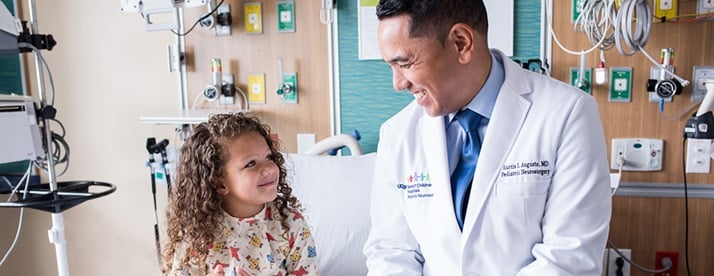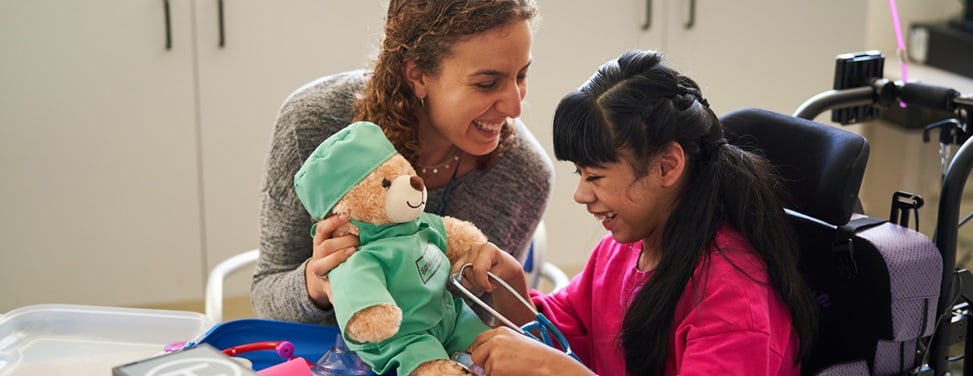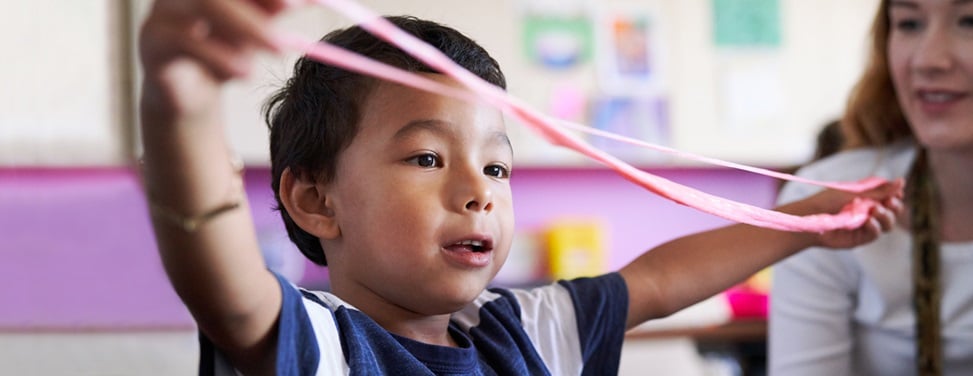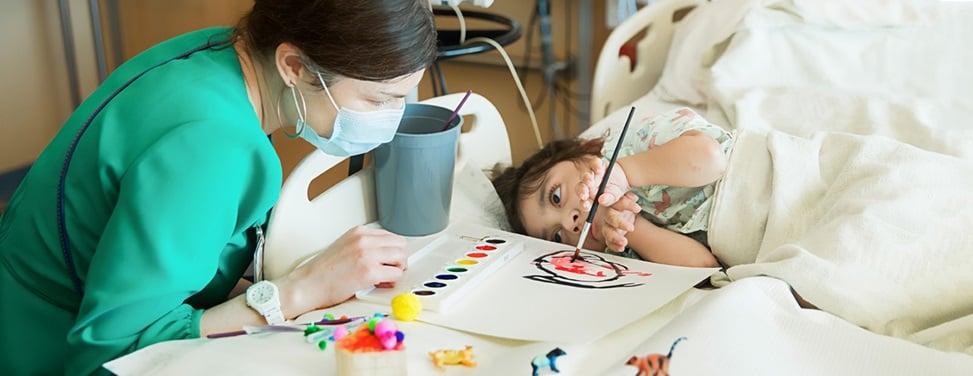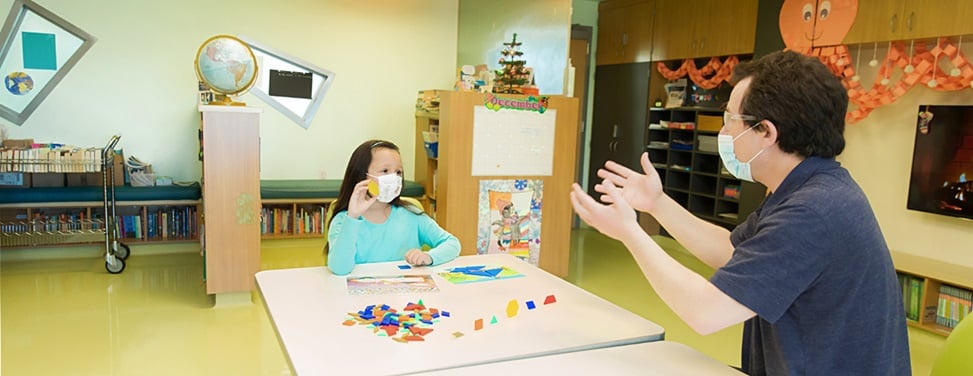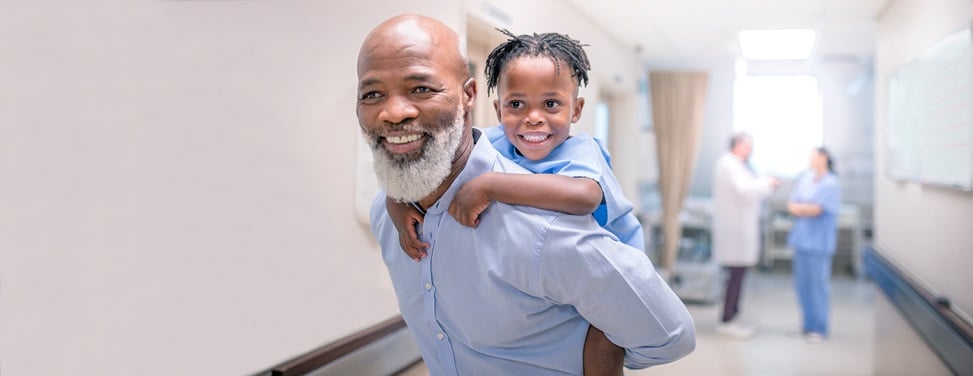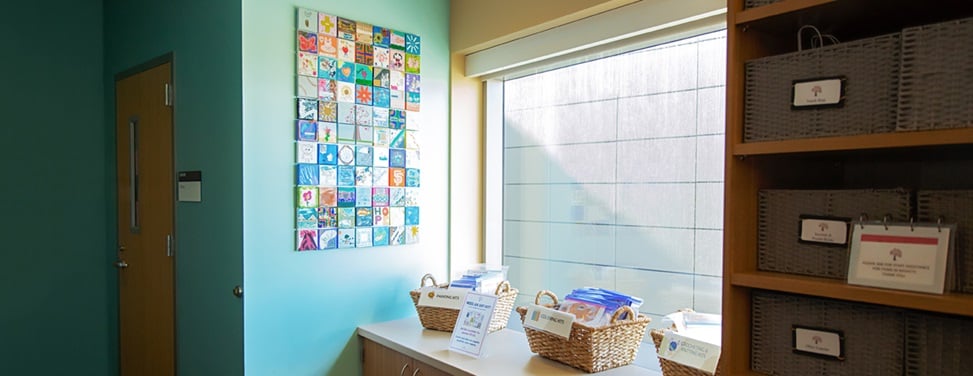
Precision Cancer Medicine Program
At UCSF, we believe cancer therapy works best when it's tailored to the patient. Our Pediatric Precision Cancer Medicine Program makes this personalized care possible for children, teens and young adults with any kind of cancer, including cancers that are rare, high-risk or resistant to standard therapies.
Our team uses leading-edge tools, such as the UCSF500 Cancer Gene Panel, to identify the genetic signatures of a patient's disease. These findings can help us diagnose cancers more precisely and allow us to design personalized treatment plans that maximize effectiveness while minimizing side effects. We also work alongside other UCSF specialists to make sure all our patients receive care that's comprehensive, top-notch and compassionate.
What's more, our doctors are leaders in national research groups dedicated to childhood cancers, including leukemia, neuroblastoma and pediatric brain tumors. This means our patients can access treatments that are still being tested in clinical trials. We're the only Northern California hospital that's part of the National Cancer Institute's Pediatric Early Phase Clinical Trials Network, a small group of top institutions tasked with developing new therapies for cancers affecting kids.
Many of the precision cancer services we provide are not readily available at other hospitals, and some are offered only at UCSF. Yet patients who don't live near the Bay Area can still benefit from our expertise: We work with oncologists throughout the country and world to analyze tumor samples and guide treatments that can be administered by the patient's local care team.
Request appointment
To schedule an appointment with the Pediatric Precision Cancer Medicine Program, please give us a call at (415) 476-3831.
Please note that many insurance plans require a referral from your child's primary care physician before you schedule a visit at UCSF. We ask that you contact your insurance carrier to check if you need an authorization before your appointment. If a referral is required, please ask your child's primary care physician to fax a referral form and any applicable medical records to the UCSF Pediatric Access Center at (415) 353-4485.
Our locations (1)
Highlights of our cancer care

Leading-edge treatments
We're among the first to offer new treatment options, as soon as they're proven safe and effective. In addition, patients can access promising experimental therapies by participating in one of our many clinical trials.
Precision medicine
High-risk tumors are analyzed with the UCSF500 Cancer Gene Panel, a state-of-the-art test that identifies mutations in the tumor's DNA. The results can indicate the best treatment course and, in some cases, clarify the exact type of cancer.
Seamless care, near and far
Dedicated patient navigators help families with managing referrals, insurance concerns and appointment planning. We work with patients and referring doctors well beyond the San Francisco Bay Area, thanks to our comprehensive telehealth system.
Thorough follow-up
Our Pediatric Survivorship Program provides expert care to address any medical, psychological or social issues that arise after treatment is complete. The team also ensures smooth transitions to adult care providers as our patients leave childhood behind.
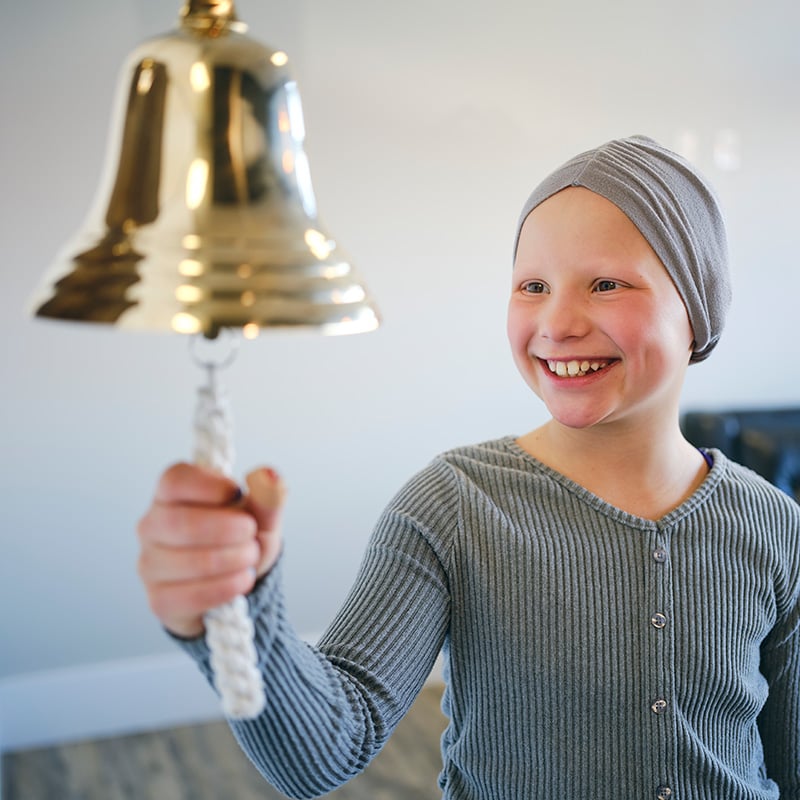
Our team
-

Anuradha Banerjee
MD
Pediatric Hematology Oncology -

Robert E. Goldsby
MD
Medical Oncology, Pediatric Medical Oncology -

Arun Rangaswami
MD
Pediatric Hematology, Pediatric Hematology Oncology -

Alyssa Reddy
MD
Pediatric Neurology -

Amit J. Sabnis
MD, MS
Pediatric Medical Oncology, Medical Oncology -

Elliot Stieglitz
MD
Hematology, Medical Oncology -

Alejandro Sweet-Cordero
MD
Hematology, Medical Oncology -

Kieuhoa T. Vo
MD
Hematology, Pediatric Medical Oncology
Awards & recognition
-
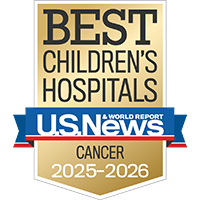
Top 10 in the nation and best in Northern California for cancer care
-

Ranked among the nation's best in 11 specialties
-
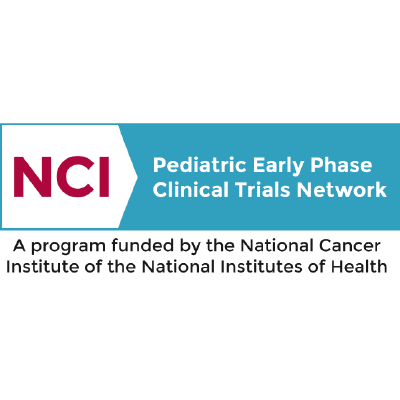
Designated an early phase clinical trials core site by the Children's Oncology Group
Plan your visit
What to Bring
- Photo I.D.
- Health insurance card
- Insurance authorization, if required
- Doctor's referral, if required
- Recent test results related to your child's condition
- List of medications, including dosages, plus any your child is allergic to
- List of questions you may have
- Device or paper for taking notes
Related clinics (5)
 3
3
Bone Marrow Transplant, Cellular and Gene Therapy Program
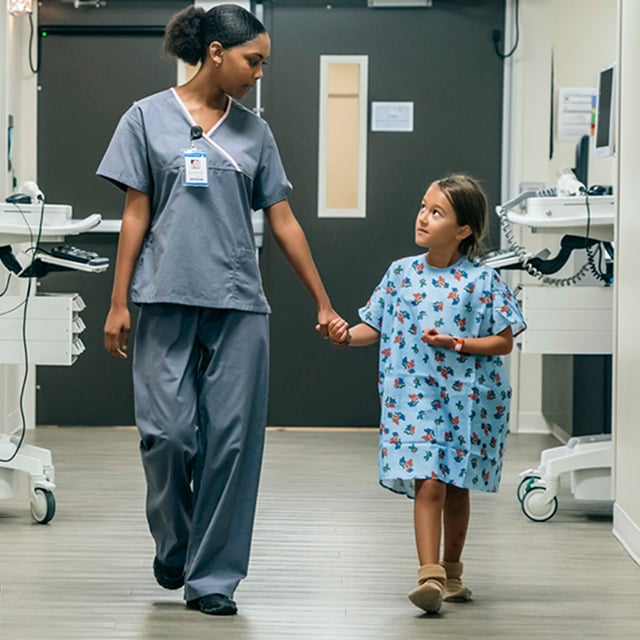 5
5
General Surgery Clinic

Orthopedic Surgical Oncology Clinic
Support services
Clinical trials
A Study of Lower Radiotherapy Dose to Treat Children With CNS Germinoma
Will be estimated for eligible and evaluable patients assigned to Stratum 1 using Kaplan-Meier (KM) EFS estimates at 2 and 3 years with respective 80% two-sided confidence intervals. Time from initiation of radiation to the first ...
Recruiting
More about this studyThoracotomy Versus Thoracoscopic Management of Pulmonary Metastases in Patients With Osteosarco...
Estimated four year thoracic event free survival (tEFS) where tEFS is calculated as the time from study enrollment. Any recurrence within the pulmonary parenchyma, involving the pleural surface or the drain/surgical site wound wil...
Recruiting
More about this studyProject: Every Child for Younger Patients With Cancer
The number of patients who agree to be in the Biobanking part of the study and have leftover tumor tissue and some normal blood, bone marrow, or other tissue saved for future research.
Recruiting
More about this studyA Study of the Drugs Selumetinib vs. Carboplatin and Vincristine in Patients With Low-Grade Gli...
The Kaplan-Meier method will be used to estimate EFS which is defined as the interval from randomization to first occurrence of clinical or radiographic disease progression, disease recurrence, second malignant neoplasm, or death ...
Recruiting
More about this studyTesting the Addition of 131I-MIBG or Lorlatinib to Intensive Therapy in People With High-Risk N...
EFS time is calculated from date of randomization or assignment to first episode of disease relapse or progression, second malignancy, or death, or until last contact if no event has occurred.
Recruiting
More about this studyTargeted Therapy Directed by Genetic Testing in Treating Patients With Locally Advanced or Adva...
Will be estimated over time and considered in relationship to changes in treatment trial cohort status (activations, suspensions, terminations).
Recruiting
More about this studyChemotherapy for the Treatment of Patients With Newly Diagnosed Very Low-Risk and Low Risk Fusi...
The Kaplan-Meier method will be used to estimate 3-year FFS along with 80% log-minus-log transformed confidence limits for very low risk (VLR) patients.
Recruiting
More about this studyA Study to Test the Addition of the Drug Cabozantinib to Chemotherapy in Patients With Newly Di...
Only patients with high risk osteosarcoma who have a primary tumor considered resectable at the time of enrollment will be enrolled to this part of the trial. If a feasible dose cannot be established, the study committee will cons...
Recruiting
More about this studyA Study of a New Way to Treat Children and Young Adults With a Brain Tumor Called NGGCT
Will be measured by the number of progressions or deaths within 2 years of enrollment for the cohort treated with whole ventricular + spinal canal irradiation (WVSCI). The final analysis will include an exact binomial confidence i...
Recruiting
More about this studyThe Pediatric Acute Leukemia (PedAL) Screening Trial - A Study to Test Bone Marrow and Blood in...
The proportion will be calculated as the percent of eligible patients who are identified to have an a priori specified genomic or immunophenotypic target and who enroll on at least one of the sub-trials. The corresponding confiden...
Recruiting
More about this studyOur research initiatives
Soothing the soul
Our music therapy program nurtures patients with bedside serenades, rap workshops and more.
Find out more































